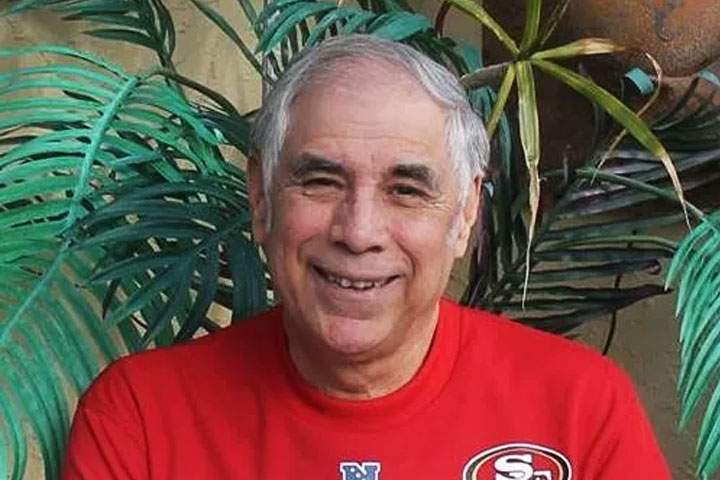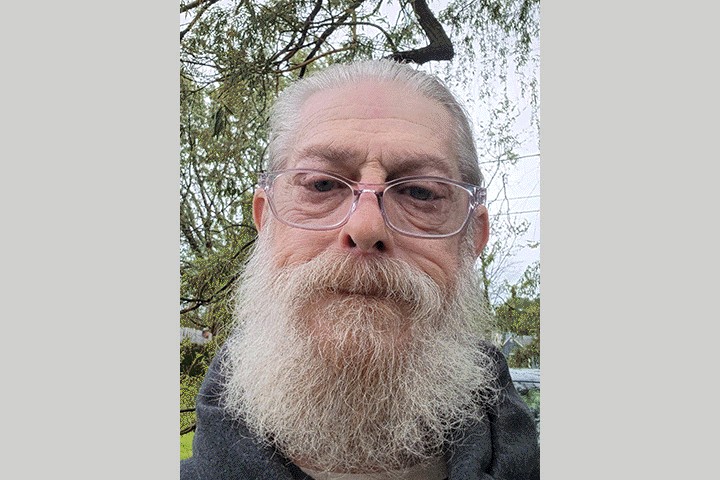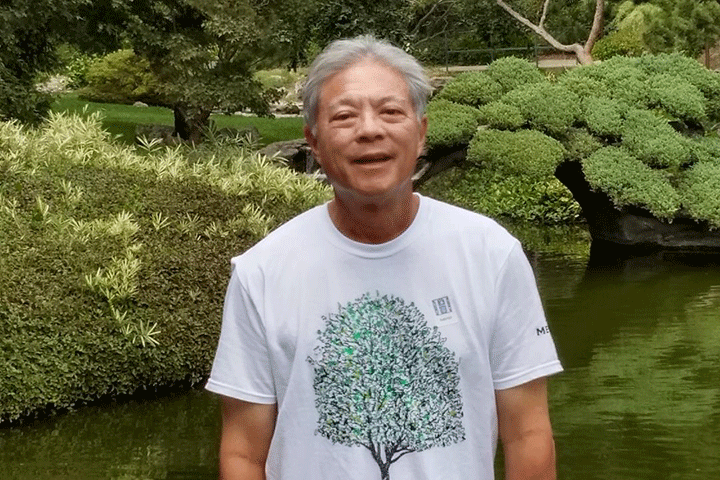Buying Time for Another Clinical Trial

- Surgery to remove the tumor, followed by chemotherapy and radiation
- Pancreatic vaccine clinical trial
- Treatment with FOLFIRINOX
- A second clinical trial vaccine/immunotherapy combination does not help
- More chemotherapy to shrink tumors
It all started in late 2011 with a minor discomfort just above my stomach.
At my annual physical in February 2012, I mentioned this to my doctor, who ordered different tests. After almost a year of trying to diagnose my gastric discomfort, a blood test showed that my liver activity was high. In January of 2013 I had a CT scan; a mass on the tail of my pancreas was discovered. I felt like a ton of bricks landed on my shoulders. The doctor was quick to add that it was isolated and surgery could remove it.
Surgery, then Chemotherapy, Radiation and a Trial Pancreatic Vaccine
My wife was an OR nurse with the VA at that time. She worked with many doctors from a high-volume pancreatic cancer hospital in northern California and knew right away Dr. Brendan Visser at Stanford should do the surgery. Forty percent of my pancreas was removed during my operation. After I recovered I received standard chemotherapy, radiation, and chemotherapy again. During this time, I also participated in a phase III pancreatic vaccine (immunotherapy) trial from New Link. I worked with Dr. George A. Fisher, Jr., who runs the clinical trials at Stanford.
I was considered to be cancer-free by September of 2013. Unfortunately, by March 2014 the cancer had metastasized, with seven small tumors in my lungs and one on my liver. The cancer was diagnosed as stage IV and I was given about a year. I underwent treatment with FOLFIRINOX, the strongest chemotherapy regimen available. FOLFIRINOX is a combination of FOL (leucovorin calcium—folinic acid), F (fluorouracil), IRIN (irinotecan hydrochloride), and OX (oxaliplatin). During this time, I took care of myself physically and spiritually, and maintained a journal on Facebook about my situation. This provided me with a tremendous amount of moral support.
Chemotherapy Break, then Another Pancreatic Vaccine
After a year of FOLFIRINOX, Dr. Pamela Kunz, my oncologist (now at Yale Cancer Center, New Haven, Connecticut) , agreed stopping chemotherapy for three months would give me a break from the toxicity of chemo, which was causing fatigue and peripheral neuropathy in my hands and feet. However, the cancer returned to my liver and expanded into my lungs. I joined a phase II clinical trial designed to awaken my body’s immune system using a monoclonal antibody, nivolumab, to remove the brakes on the immune system, and a different pancreatic vaccine, GVAX. This was my second time working with Dr. Fisher.
To be clear, clinical trials are not desperate measures. In fact, it is through Dr. Fisher and his clinical trials that the cure for cancer will be found.
Back to Standard Chemotherapy, with Success
Unfortunately, this clinical trial did not help and the cancer spread to my gall bladder, body cavity lining, and lymph nodes. My situation was dire. However, I underwent a third chemo treatment plan, using Gemzar and Abraxane, in hopes of buying time for another clinical trial. The latest CT scan has shown that this treatment is working. Nearly all of the tumors have shrunk, some by almost 50%.
As long as the Gemzar and Abraxane keeps shrinking my tumors, I will keep taking them. This way I will be in better shape for the next clinical trial. I will then have more margin for error should the clinical trial prove to be ineffective. If I had started a clinical trial before undergoing this latest chemotherapy, and the clinical trial was ineffective, I would not have survived. Now with fewer and smaller tumors I will have a better chance of surviving even if the trial does not work for me. According to Dr. Kunz, there are some trials on the horizon that might be right for me.
We know that hard days will come and hard days will go, only for them to come again, but we are prepared. I strongly believe that the most important factor in winning this battle has been the support of my friends, relatives, and, most importantly, my wife and daughter. They have been with me every step of the way. We are all maintaining a positive attitude and are looking forward to many more years of enjoying life.
Rich passed away on July 29, 2019, after battling pancreatic cancer since 2013. During that time he continually searched for clinical trials that could help him, and tirelessly advocated for more funding for pancreatic cancer research. He was the very definition of “never give up.” We offer our deepest sympathy to his family and to all who knew him.






